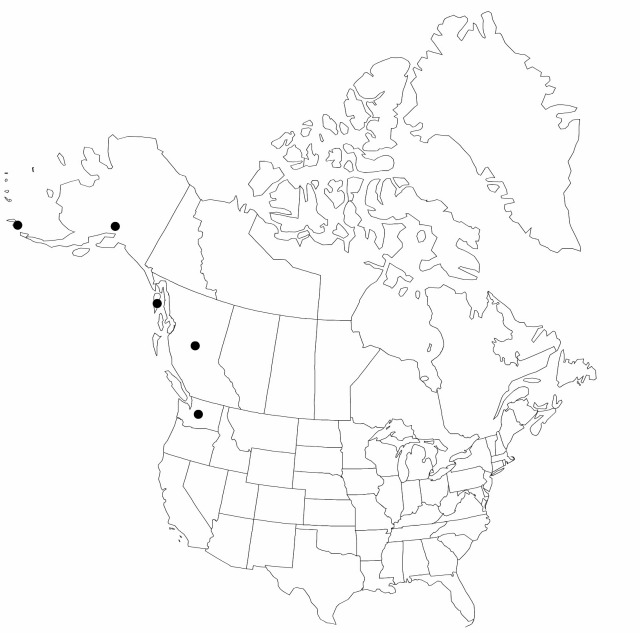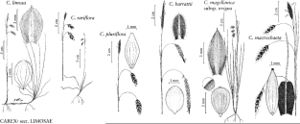Carex pluriflora
Acta Univ. Lund., n. s. 38: 367, fig. 4a–d. 1942.
Culms phyllopodic, with dead leaf remains at base, 20–60 cm. Leaf blades 1.5–4 mm wide, margins sometimes revolute, scabrid at tip. Inflorescences: proximal bracts 0.5-2 cm, shorter than inflorescences; lateral spikes 12–20 × 6–8 mm, with (7–)10–25 perigynia; terminal spikes 10–25 × 2.2–3 mm. Pistillate scales ovate-circular, 3.5–4.5 × 2.1–3.8 mm, slightly shorter than and wider than perigynia, apex acute to acuminate, mucronate, or shortly awned less than 1.5 mm. Staminate scales oblong-ovate, 3–4.7 × 1.2–2.4 mm, apex obtuse. Anthers 2–2.3 mm. Perigynia 3.2–4.2 × 1.5–2.6 mm, apex tapering to rounded; beak absent.
Phenology: Fruiting summer.
Habitat: Bogs, marshes, stream banks, shores, sometimes brackish
Elevation: 0–1000 m
Distribution

B.C., Alaska, Wash., ne Asia (e Russian Far East, Commander Islands).
Discussion
The name Carex stygia has been incorrectly applied to specimens of C. pluriflora. T. V. Egorova (1999) treated C. pluriflora as a subspecies of C. rariflora.
Selected References
None.
